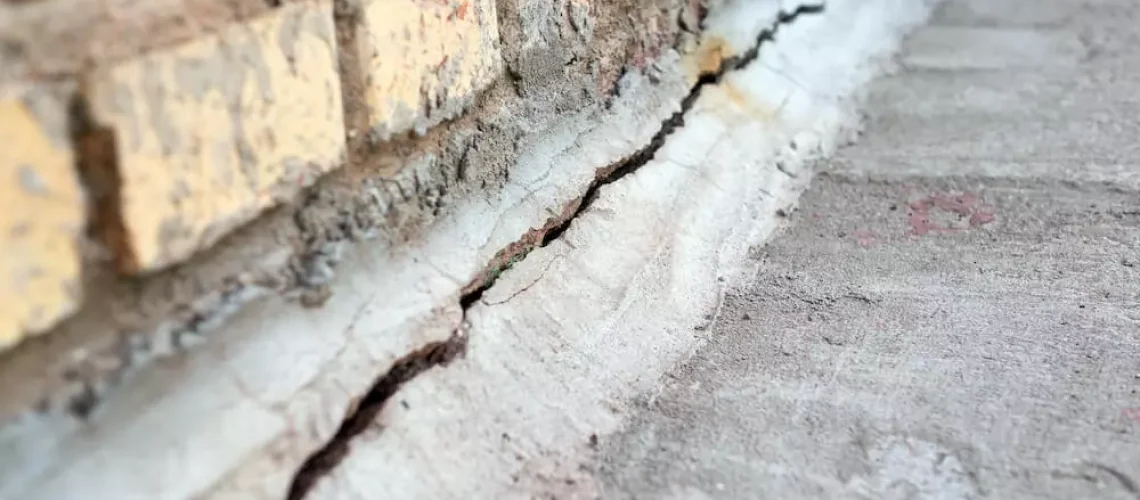The foundation is the bedrock upon which a home stands, providing stability and support. Yet, over time, various factors can lead to foundation issues that, if undetected, may jeopardize the structural integrity of a home. Home inspectors, armed with a discerning eye and knowledge of construction, play a crucial role in identifying and revealing common foundation problems. In this comprehensive guide, we’ll explore the most frequent foundation issues uncovered by home inspectors, underscoring the importance of timely intervention for a solid and secure home.
1. Settling and Sinking Foundations
Issue: Uneven Settling of the Foundation
One of the most common foundation problems identified by home inspectors is settling or sinking. Over time, a home’s foundation may unevenly settle, leading to noticeable changes in elevation.
Why It Matters:
Uneven settling can cause structural imbalances, leading to cracks in walls, floors, and other areas of the home. Home inspectors stress the importance of identifying the extent of settling and recommending measures to address and stabilize the foundation.
2. Foundation Cracks
Issue: Cracks in Foundation Walls or Slabs
Foundation cracks are a frequent discovery made by home inspectors. These cracks may vary in size, location, and severity, indicating different underlying issues.
Why It Matters:
Cracks can compromise the structural integrity of the foundation and may allow water infiltration. Home inspectors emphasize the need to assess the type and extent of cracks, as well as implement repairs to prevent further damage.
3. Poor Drainage and Water Accumulation
Issue: Inadequate Water Drainage Around the Foundation
Poor drainage and water accumulation around the foundation are common concerns identified by home inspectors. Improper grading, lack of drainage systems, or clogged gutters can contribute to water-related foundation problems.
Why It Matters:
Water accumulation can lead to soil erosion, foundation movement, and increased risk of settlement. Home inspectors recommend addressing drainage issues promptly to mitigate the impact of water on the foundation.
4. Foundation Heaving
Issue: Upward Movement of the Foundation
Foundation heaving, the upward movement of the foundation, is a problem that home inspectors often uncover. This can result from soil expansion due to moisture, frost action, or other factors.
Why It Matters:
Heaving can lead to cracks, distortion, and structural damage. Home inspectors stress the importance of identifying the causes of heaving and implementing corrective measures to stabilize the foundation.
5. Soil Shrinkage and Swelling
Issue: Fluctuations in Soil Moisture Content Affecting the Foundation
Changes in soil moisture content, including shrinkage during dry periods and swelling during wet periods, can impact the foundation. Home inspectors frequently identify signs of soil-related foundation movement.
Why It Matters:
Soil movement can lead to foundation cracks, shifts, and settlement. Home inspectors recommend measures to address soil-related issues, including proper watering, drainage improvements, and foundation maintenance.
6. Foundation Underpinning and Support Issues
Issue: Problems with Foundation Support Systems
Issues with foundation underpinning, support piers, or beams are common findings during home inspections. These problems may result from poor initial construction or deterioration over time.
Why It Matters:
Inadequate support can lead to structural instability and compromise the safety of the home. Home inspectors stress the importance of evaluating and reinforcing the foundation support systems as needed.
7. Uneven Floors and Sloping
Issue: Noticeable Unevenness or Sloping in Floors
Uneven floors or noticeable slopes within the home are indicators of potential foundation problems. Home inspectors often identify areas where the floor has shifted or settled unevenly.
Why It Matters:
Uneven floors can be a result of foundation settlement or movement, affecting the overall stability of the structure. Home inspectors recommend investigating and addressing the underlying causes to restore evenness and stability.
8. Foundation Waterproofing Issues
Issue: Insufficient Waterproofing Measures for the Foundation
Inadequate waterproofing, such as the absence of proper sealants or barriers, is a common concern uncovered by home inspectors. This can lead to water penetration and damage.
Why It Matters:
Water infiltration can compromise the foundation’s integrity, leading to cracks, mold growth, and structural issues. Home inspectors stress the need for effective waterproofing measures to protect the foundation from moisture-related damage.
9. Tree Root Intrusion
Issue: Impact of Tree Roots on Foundation Stability
Tree roots seeking moisture can intrude into the foundation, causing displacement and damage. Home inspectors often identify signs of root intrusion during their examinations.
Why It Matters:
Root intrusion can lead to cracks, heaving, and structural damage. Home inspectors recommend addressing the presence of nearby trees and their impact on the foundation to prevent ongoing issues.
10. Insufficient Foundation Ventilation
Issue: Lack of Proper Ventilation in Crawl Spaces
Inadequate ventilation in crawl spaces or basements is a common concern found by home inspectors. Poor ventilation can lead to moisture buildup and contribute to foundation problems.
Why It Matters:
Insufficient ventilation can result in excess moisture, leading to mold growth, wood decay, and foundation issues. Home inspectors stress the importance of maintaining proper ventilation to preserve the integrity of the foundation.
Conclusion
The foundation, a silent cornerstone, requires vigilant care to ensure the stability and longevity of a home. Home inspectors, with their trained eyes and knowledge of construction, play a crucial role in identifying and exposing common foundation problems. From settling and cracks to drainage issues and insufficient support, addressing these concerns is paramount for maintaining a solid, secure, and structurally sound home. In the realm of homeownership, proactive measures, regular inspections, and timely repairs are key to mitigating the risks associated with common foundation problems and ensuring the enduring strength of a home’s foundation.
For other issues that home inspectors commonly find, read our article, Uncovering a Home’s Dirty Secrets.


